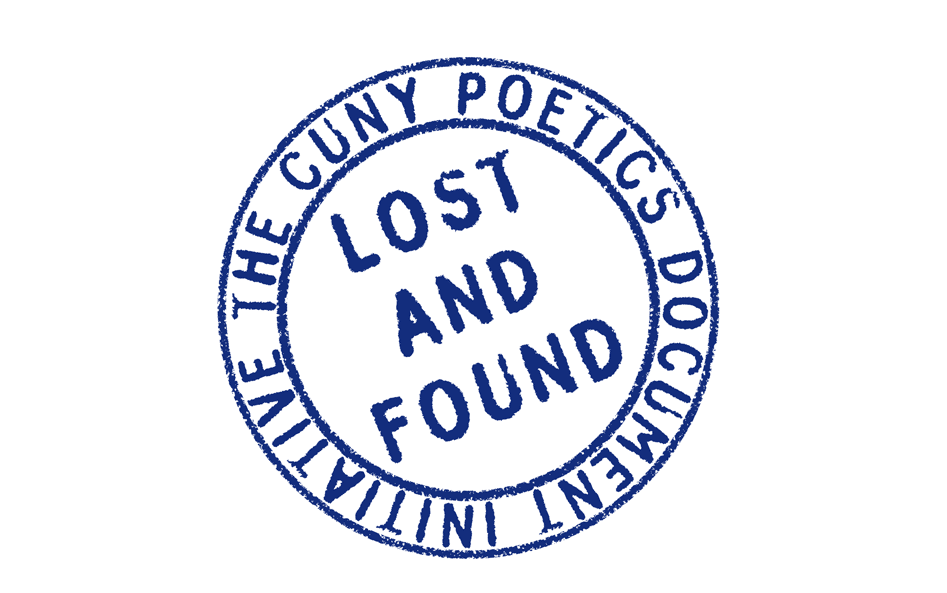
Lost & Found: The CUNY Poetics Document Initiative is excited to announce the recipients and highlight their archival research projects from our 2019 Grants and Fellowships. Lost & Found supports and mentors CUNY graduate students as they research and contextualize archival materials as part of our annual Research Stipends program. This year, thanks to generous support from the Early Research Initiative at The Graduate Center, CUNY, 14 students have received financial and logistical support as they traveled to archives here and abroad, both personal and institutional, developing their innovative research. These projects will take on a number of final forms—dissertations, Lost & Found chapbooks, or full-length books published in collaboration with a larger press as part of our Lost & Found Elsewhere series.
The 2019 Archival Research Grants and Fellowship have been awarded to the following CUNY graduate students: Khaled Al Hilli, Jacob Aplaca, Onur Ayaz, Christopher Clarke, César Augusto Coca Vargas, Roberto Elvira Mathez, Carlos G. Espinal, Brad Fox, Stefano Morello, Adashima Oyo, Bhargav Rani, Robert P. Robinson, Rojo Robles, Jeff Voss.
Read below about their projects that dive deep into the archives and works of Pedro Pietri, Salomon de la Selv, W.E.B. Du Bois, Dr. Asa Hilliard and the Black Panther Party’s Oakland Community School, Liliana Heker, Isaac Julien and Langston Hughes, Sargon Boulus, Williams Carlos Williams and José Vazquez-Amaral, the East Bay Punk Digital Archive (EBP-DA), Raphael Patai and more.
Rojo Robles
Pedro Pietri: Condom Poems 4 Sale One Size Fits All
A collection of short poetic texts that documented bohemianism, sexuality and its menaces, and absurd inspiration. They were also conceptual performances that played with visual elements, spoken-word, videos and the creation of artifacts. Pedro Pietri would sell condoms inside a small manila envelope with a poem written on it to those interested. They called attention to the AIDS epidemic and the sexual health of the Nuyorican community during the late eighties. Thinking of concise formats such as the telephone voice-message and advertising mottos, Pietri spread poetic insight and self-awareness while documenting dark times in the city.
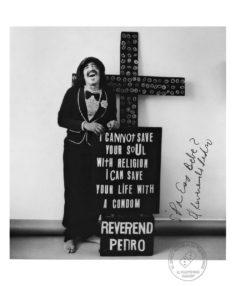
Adashima Oyo
Adashima Oyo is a PhD student at The Graduate Center, CUNY. She earned both a Master of Public Health (MPH) and a Bachelor of Arts in English from Brooklyn College, CUNY. Her research interests explore the impact of the “minority-majority” demographic shift on health disparities. Adashima is also interested in examining the impact of the glaring lack of racial diversity among doctoral students, faculty and executive-level leadership in higher education. In addition to working as the Director of HASTAC Scholars, she is part of the adjunct faculty at New York University (NYU) and Brooklyn College, CUNY where she teaches courses about healthcare and developing research papers to undergraduate students. Adashima is also a Futures Initiative Fellow and Silberman Doctoral Fellow. #BlackScholarsMatter
In Adashima Oyo’s research project, “Can’t Hear Him: The Warnings W.E.B. Du Bois Gave for Eliminating Health Disparities & Achieving Health Equity,” Oyo is conducting archival research methods to investigate the signs that Du Bois presented about the problem of racial differences in health status and the resolutions he provided. By primarily focusing on his scholarly work about the Philadelphia Negro, his memoirs and poetry about America and race, and rare audio and visual interview clips, Oyo is exploring the warning that Du Bois provided and interpret why he was not heard.
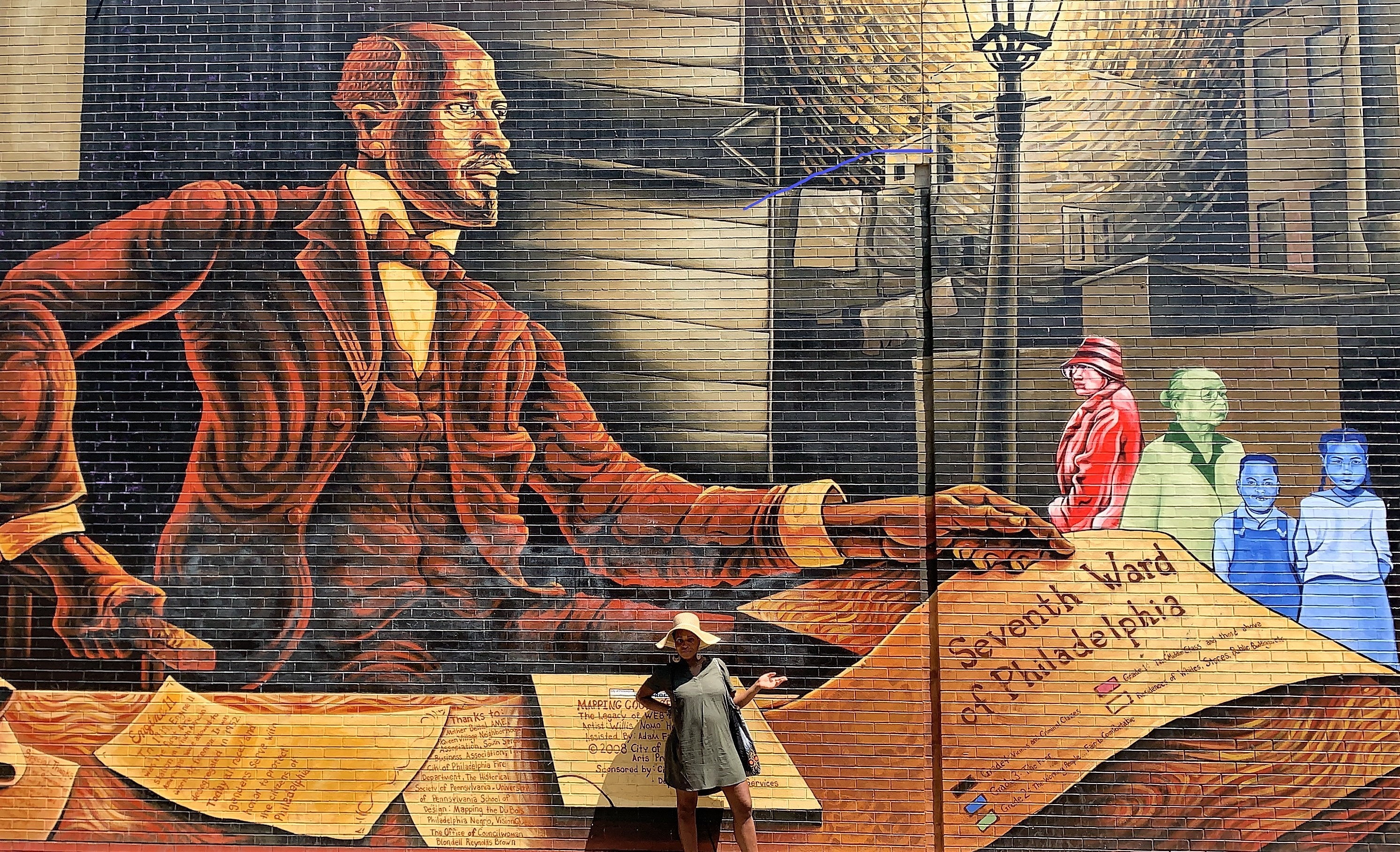
César Augusto Coca Vargas
César Augusto Coca Vargas is a PhD candidate in Latin American, Iberian and Latino Cultures at the Graduate Center, CUNY. His research interests include Latin American Literature and Andean Oral Tradition from the 60s. He has taught courses about relations between Literature and Politics, and he is taking Quechua Classes at NYU. Moreover, he is a committee member of the journal of literature Entre caníbales.
“Defying genres: Liliana Heker’s written and visual testimonies at the Café de los Angelitos (1960)”
The testimonial nature of this project aims to reveal, from the Argentine cultural context of the 60s, two challenges that Liliana Heker assumed. Firstly, the difficulties she had to overcome to participate in a predominantly male cultural environment. Secondly, the debate between aesthetics and politics in which she actively intervened and hers works. This project is relevant, precisely, because it tries to reflect on the links between gender, literature, and politics. For this reason, the importance of the Liliana Heker’s works in those years transcended several spheres of society, and it can be understood like paradigmatic.
Robert P. Robinson
Robert P. Robinson is a doctoral candidate in the Urban Education Program at The Graduate Center. In addition to his work as a former high school English teacher, he brings teaching/advising experience in college preparation, multicultural education, and ethnic studies. His broach research focuses on the history of US education with attention to Black education history, curriculum studies, and the Black Freedom Movement.
Robinson’s search into Dr. Asa Hilliard began with the professor’s small connection to the Black Panther Party’s Oakland Community School. Hilliard’s documents and correspondence, housed at Atlanta University Center’s Woodruff Library, provide insight into a figure who did much to define latter 20th century discourse around Afrocentric thought and teaching. This Lost & Found project explores Dr. Asa Hilliard as the public powerhouse and the emotionally dynamic father, son, husband, and spiritual mentor who died unexpectedly after an educational trip to North Africa. (adding this) Most recently, Robinson has discovered Hilliard’s connection to the father of Multicultural Education, James Banks, and his role in the development of Ethnic Studies and Black Studies curriculum. In addition to exchanges of scholarship, the two men planned collaborations and play dates for their children. What Hilliard’s correspondence and calendars reveal is the building of racially conscious curriculum in the 1960s and 1970s alongside warm collegial relationships: a community of Black scholars, activists, and everyday people. Hilliard’s network was vast, including scholars like Geneva Gay, Carl Grant, Charles Payne, and Jonathan Kozol. He spoke to local school districts throughout California and encouraged parent educational activists in New York. The same man whose calendar held dates with the NAACP mid-day also kept dates for his sons’ evening sports games. From large crowds to small Methodist churches, Hilliard was intentional about maintaining his intellectual, familial, social, spiritual, and cultural communities across both coasts and both continents.
Below is a memorial video for more context on Dr. Asa Hilliard’s work:
Christopher Clarke
Chris Clarke is a literary translator and a doctoral candidate in French at the Graduate Center, CUNY, where he specializes in contemporary literature and translation studies. His published translations include work by Pierre Mac Orlan (Wakefield Press), Raymond Queneau (New Directions), François Caradec (MIT Press), Marcel Schwob (Wakefield Press), and Nobel Prize winner Patrick Modiano (NYRB Classics). His dissertation examines the role of translation in the career of French novelist and poet Raymond Queneau.
Christopher Clarke’s archival research project will center around the New York journal of literary criticism Kulchur (1961-1965), edited by Marc Schleifer, and later Lita Hornick. This will involve a close reading of the journal’s twenty issue run followed by an examination of the Lita Hornick papers, held at Columbia University. The parallel role played by Kulchur alongside the poetry journals of its day are often overlooked; a reevaluation of its relevance, supplemented by correspondence and editorial information from the archive, should help to demonstrate the important role it played in the formulation of the poetics of its day.
Carlos G. Espinal
Carlos G. Espinal is a doctoral student in Spanish at the Graduate Center, CUNY. His research focuses on late nineteenth and early twentieth-century Spanish-language print culture in New York City and the Caribbean.
Although a seminal figure within New York City’s Hispanic community at the beginning of the 20th Century, Salomon de la Selva has received little scholarly attention. Espinal’s research project explores the literary and social milieu which he inhabited in the second decade of the past century by looking at his correspondence with writers such Edna St. Vincent Millay and Edwin Markham, as well as some of his public interventions, as may be seen in his articles in Novedades de Nueva York.
Khaled Al Hilli
Khaled Al Hilli’s project will continue to trace the literary encounters of Sargon Boulus, an Iraqi poet who was part of the vibrant literary scene of late 60’s San Francisco. Al Hilli will follow the trail of Boulus’s literary career as it intersected with the Beat poets of San Francisco by interviewing his literary collaborators (including his editor Samuel Shimon), and focusing on his involvement with the UK-based literary journal Banipal. Boulus’s life (1944-2007) was marked by a period of restless traveling that he would later describe as an attempt to pursue a poetic imaginary. These relentless geographical transitions, punctuated by a long stay in the US, were driven by an overriding desire to form a new aesthetic vision for Arab poetics.
This project continues to map his proximity to the Beat poets, his short-lived Bay Area poetry journal, Tigris, and his other English language publications. It will also explore some of his collaborations with literary figures such as Allen Ginsberg, Bob Kaufmann, and Gregory Corso, all of whom played a significant role in Boulus’s literary formation, helping him further formulate his vision for a modernist, cosmopolitan poetics in Arabic.
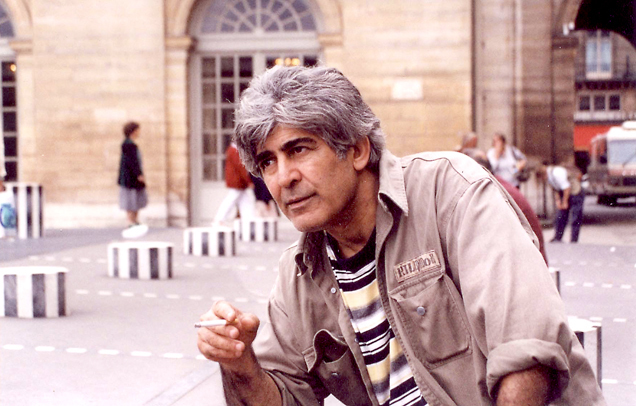
Jacob Aplaca
Jacob Aplaca is a fourth-year PhD student in the English program at the Graduate Center, CUNY and a teaching fellow at Hunter College. His dissertation research focuses on the emergence of queer melancholia as an affective structure in 20th and 21st-century Anglophone literatures. In his spare time, he indulges in poetry, some of which can be found in PANK Magazine and Yes Poetry, and complains about adjunct life on McSweeney’s Internet Tendency.
This project examines the archive of Isaac Julien, a London filmmaker and installation artist. Of particular are the numerous archival materials associated with Julien’s seminal film Looking for Langston (1989), which meditates upon the legacies of Langston Hughes and the Harlem Renaissance through the lens of black queer identity while, too, reflecting on the growing carnage of the AIDS crisis. Today, this film maintains a cult following not only because of its provocatively anachronistic treatment of Hughes and the Harlem Renaissance but also because of the public scandal that ensued when the Hughes estate, upset by Julien’s queer portrayal of Hughes, attempted to legally block the premiere of Looking in the US. In addition to exploring the paper trail left by the legal conflict, this project pays close attention to the archive’s extensive photographic collection (one that comprises professional film and amateur polaroid photos) that documents both the making of Looking and the fostering of a queer community among the film’s participants around the creation of this film and, more significantly, the losses Looking brings to light: that of Hughes and those of the AIDS crisis.
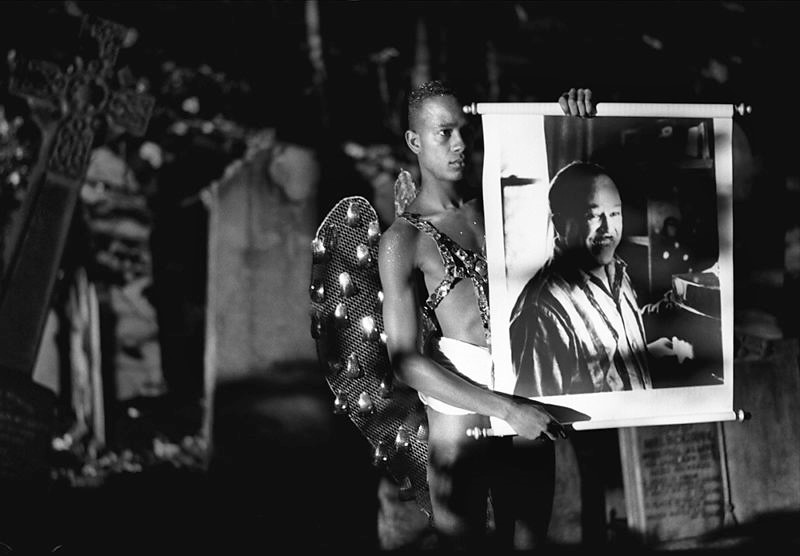
Bhargav Rani
Bhargav Rani is a doctoral candidate of Theatre and Performance at the Graduate Center, City University of New York (CUNY). His research lies at the intersection of poetry, performance in everyday life and political theory to explore the nature of everyday experience in the city of Banaras in northern India.
Rani’s research and project looks at the rich history of neighborhood musha’iras (poetry jams) and amateur poets in the city of Banaras in northern India. Since the early 20th century, this culture of poetry has been a fertile ground for the consolidation and performance of fundamentally egalitarian urban consciousness known as banarasipan (Banarasi-“ness”) that is animated by two core tenets – its valorization of idleness, leisure and unproductive labor, and its affirmation of an overarching Banarasi identity that proposes a reconciliation of sectarian and caste differences. By tracing the performances of a distinctive Banarasi consciousness in the comic-satire poetry of the city, Rani’s research explores banarasipan as a historical consciousness taking shape at the intersection of, and challenging, Enlightenment modernity under global imperialism on the one hand, and a militant Hindu nationalism, on the other.
Roberto Elvira Mathez
Roberto Elvira Mathez is a PhD Candidate at the LAILAC department at the Graduate Center, CUNY. He attended Stockholm Universitet for his Master, during which he also spent a semester at the Universidade do Porto. In Buenos Aires he obtained his BA and worked in Mundo Villa. He specializes on the relationship between the historical-political conditions of production and reception that define literature. He has published two books, Tú y yo y las primeras lluvias and Tras el reflejo. Also, has published translations from Spanish to Swedish and English, and Norwegian to Spanish.
In the context of McCarthyism, Williams Carlos Williams and José Vazquez-Amaral (who were introduced by Ezra Pound), start to translate recognized communist and socialist poets from Latino America, such as Pablo Neruda and Nicanor Parra. This archival research on the correspondence between them, seeks to recover a prominent intellectual figure of American Chicano tradition, who remained anonymous in the translations, and to dive deeper into this unique literary event in New American Poetry.
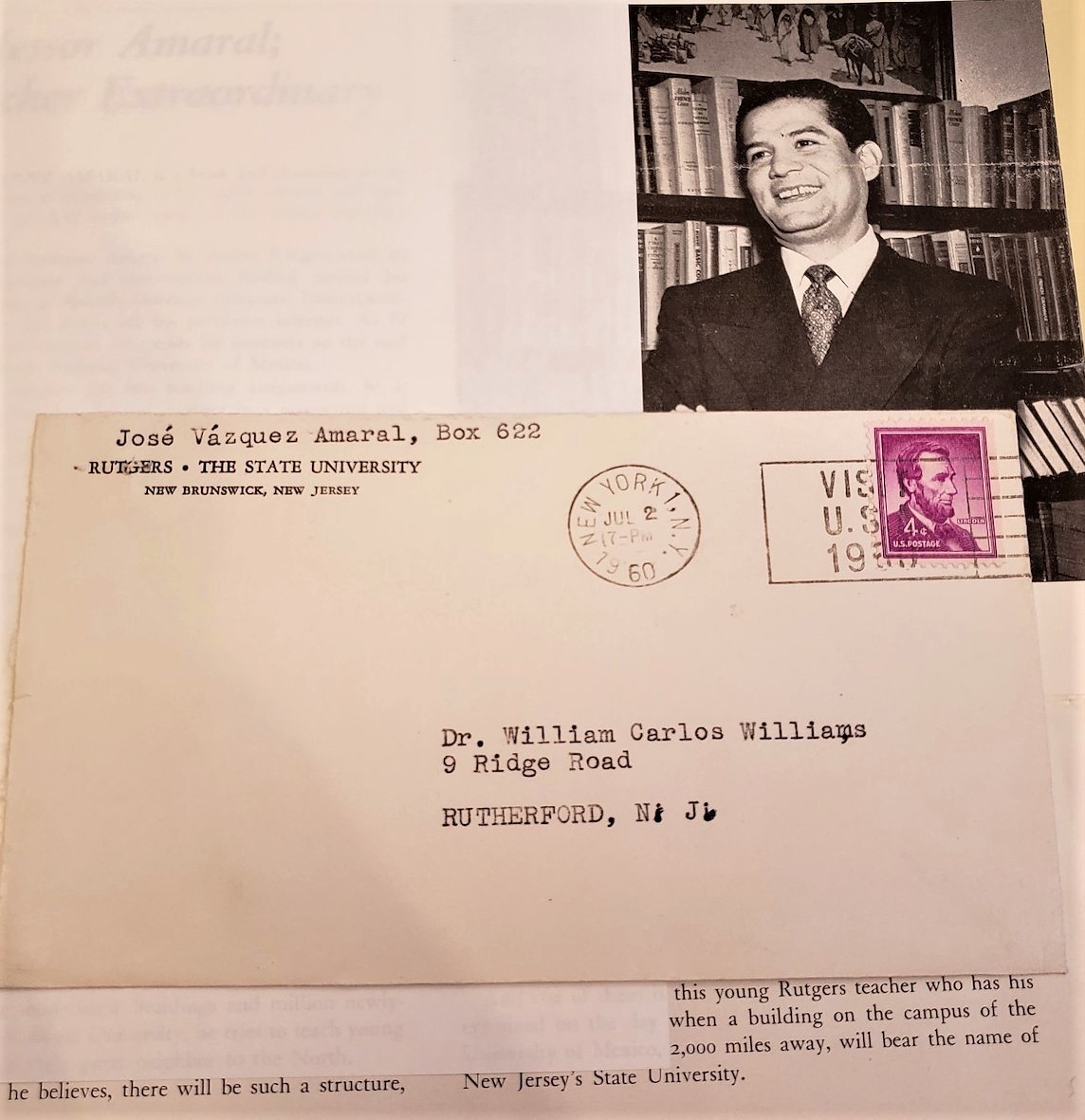
Brad Fox
Brad Fox is a PhD candidate in English and Medieval Studies. His research concerns records of visionary experience, the Arab Atlantic, and Islamic elements in American literature. He teaches Creative Writing and Medieval Lit at City College.
For this Lost & Found research project, Fox will continue research in New Haven, CT. He will be working in the Ira Cohen papers held in the Beinecke Library; and he will compile a project with Darius James, involving interviews and unpublished or out-of-print work. Click here to read more “Mirrors, Lullabies” from Brad’s website here.
Stefano Morello
Stefano Morello is a fifth-year doctoral candidate in English at The Graduate Center, CUNY. His academic interests include American Studies, pop culture, poetics, and archive theory. His dissertation, “Let’s Make a Scene! East Bay Punk and Subcultural Worlding,” explores the heterotopic space of the East-Bay punk scene, its modes of resistance and (dis-)association, and the clashes between its politics and aesthetics. He serves as co-chair of the Graduate Forum of the Italian Association for American Studies (AISNA) and is a founding editor of its journal, JAm It! (Journal of American Studies in Italy). As a digital humanist, Stefano focuses on archival practices, with a knack for archival pedagogy and public facing initiatives. He created the East Bay Punk Digital Archive, an open access archive of East Bay zines and co-curated “The Lung Block: A New York City Slum and Its Forgotten Italian Immigrant Community,” an exhibition based on his yet unpublished M.A. dissertation.
As part of his dissertation, Stefano Morello is collecting material from personal archives and engaging in conversations with local punks in the San Francisco Bay Area. He is also working on the East Bay Punk Digital Archive (EBP-DA), a website that preserves and makes available – to researchers, subcultural participants from around the world, and to a general public unfamiliar with the topic – the subjugated knowledge produced by several subcultural formations that loomed in around the Bay Area between the early 1980s and the mid-1990s.

Onur Ayaz
Onur Ayaz is a PhD student at the CUNY Graduate Center. He holds a BA in English and Linguistics from CUNY Brooklyn College.
Raphael Patai (1910-1996), a cultural anthropologist and preeminent scholar specializing in Jewish and Arab cultures, is the starting point and focus of this research project. He recorded Arab and Jewish folk tales from regions such as Palestine and Israel. The sheer volume and breadth of his writings and publications—from thirty-five books to hundreds of scholarly articles—calls for a closer look at his archives and collections. The exigency of this project lies with the need to explore his correspondences, writings, and notes to discover communities of writers that he was part of.
Jeff Voss
Jeff Voss is a doctoral student in the Department of English at the Graduate Center, CUNY. His research focuses on American popular culture, racial capitalism, and projects guided by what Denise Ferreira da Silva calls “difference without separability.”
How did David Wojnarowicz imagine himself as a friend? How did he practice and live his friendships, and how, through various movements of exchange—of pleasures, letters, commiserations, frustrations—did he reveal and obscure himself to his companions, to himself? Through working with the David Wojnarowicz Papers housed in the Fales Library at NYU, I want to explore the local memories/knowledges Wojnarowicz forged with his friends, focusing less on locating a “true” or “authentic” self than on the kind of worlds, sociality, and solitudes produced by and through his friendships. I suspect looking at his personal correspondences, tapes, and journal entries reflecting on his friendships, in conjunction with his visual artwork and photographs, could give fresh angles on how Wojnarowicz forged himself as a person and an artist through, against, and with(in) others.
The 2019 Lost & Found Archival Research Grants were made possible by generous support from the Early Research Initiative at The Graduate Center, CUNY.
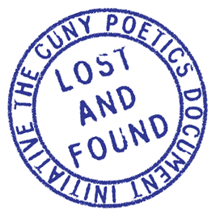
EXTENDED Application Deadline: Friday, February 8th, 2019, 11:59 PM
Eligibility: Doctoral Students at the Graduate Center, CUNY
Lost & Found is a publishing project centered on student archival research in 20th century cultural materials, with a focus on poetry and poetics. Poised at the intersection of scholarly investigation, innovative publishing, and cultural preservation, each Lost & Found chapbook emphasizes the importance of collaborative and archival research. The work of Lost & Found is multi-valent and involves: archival research at all stages of its development, digital practices, public events, oral history, mentorship, transcription, and editorial support.
The Center for the Humanities is delighted to announce, thanks to generous support from the Early Research Initiative at the Graduate Center, CUNY, the 2019 Lost & Found Research Grants available for doctoral students from all disciplines at the Graduate Center, CUNY, with experience and / or an interest in archival research.
- ARCHIVAL RESEARCH GRANT
The Lost & Found Archival Research Grant is for students in all disciplines who are currently developing archival research and will range from $1,000 to $3,000. It is important to note that Lost & Found is about process as much as product, and only some projects will ultimately be published, though all projects will be stewarded toward completion. Recipients should expect to complete a survey of their progress in August 2019.
We will entertain proposals for projects at all stages of development, from exploratory to advanced, but we strongly suggest that applicants familiarize themselves with Lost & Found publications (or check out the 2018 L&F projects here) to determine if their project makes sense within the context of our work. Please reach out to [email protected] should any further questions or concerns arise.
- AMIRI BARAKA FELLOWSHIP
Lost & Found was honored to have published the work of Amiri Baraka in Series I, in a project that went on to become the award winning volume Amiri Baraka and Edward Dorn: The Collected Letters (University of New Mexico Press). We counted on Baraka’s friendship and support until his death in 2014, often discussing future projects. He remains a seminal figure, that rare writer who had a huge impact on US culture as a whole and made his mark across so many genres: poetry, prose, drama, essays, and scholarship, not to mention his own public activities. At the same time, there is much work to be done in order to fully account for and keep present the depth and breadth of his legacy. Deeply connected across so many different figures, movements, historical moments, and political processes, Lost & Found’s motto to “follow the person” can yield immense riches in Baraka’s case. While we have an ongoing interest in continuing work on his much neglected correspondence, this is an open call for students to propose projects based on any of the multi-faceted aspects of Baraka’s archive, much of which is held between Columbia University and the NYPL.
- DIANE DI PRIMA FELLOWSHIP
Lost & Found will be granting one Diane di Prima Fellowship. Diane di Prima’s archive is spread far and wide: her own home in San Francisco (a primary research site), as well as archives at UNC Chapel Hill, UConn Storrs, University of Delaware, and Syracuse, not to mention all the correspondence and other materials found in the archives of other contemporaries and colleagues. Having already published several di Prima projects with others in process at Lost & Found, these fellowships are for direct work on and with di Prima, with a particular emphasis on working with archivists and institutions to envision new channels of access across various holdings and modes of her oeuvre.
- LEGACY FIELDWORK GRANT
As Lost & Found has evolved, editors have gained various levels of expertise. Some editors have become literary executors and archivists, others have worked on documentary projects as researchers or closely with estates and authors to investigate, curate, prepare and generally be of service in a variety of circumstances. Sometimes this has meant moving and or cataloging books, shipping things, organizing papers, serving as liaison between filmmakers, publishers, estates, estate brokers, library or special collections representatives and academic administrations. To this end, we have created the “Legacy Fieldwork” stipend for projects with unusual circumstances that might not be tied to an immediate research or archival project. Legacy Fieldwork is conceived of as the application of skills acquired through the archival research and publication process of Lost & Found to serve and educate the literary community writ large.
When applying for this, applicants (GC Doctoral Students) should describe the situation at hand (being as specific as possible), what kind of skills are required to handle it, as well as the time frame, travel involved, and any other details necessary to understand how a stipend will bring Lost & Found’s practices to bear on the circumstances described.
- TO APPLY
To apply for the Archival Research Grant, Amiri Baraka Fellowship, the Diane di Prima Fellowship, or the Legacy Fieldwork Grant, please send the following to [email protected] no later than Friday, February 8th, 2019, 11:59 PM.
1.) Curriculum Vitae
2.) A one-page letter of interest
3.) Application Form (click here to fill out)
For more information about how to apply to these grants, please visit: lostandfoundbooks.org or email [email protected]
The 2019 Lost & Found Archival Research Grants were made possible by generous support from the Early Research Initiative at the Graduate Center, CUNY.
Cosponsored by Lost & Found: The CUNY Poetics Document Initiative, the Early Research Initiative and The Office of the Provost at the Graduate Center, CUNY.